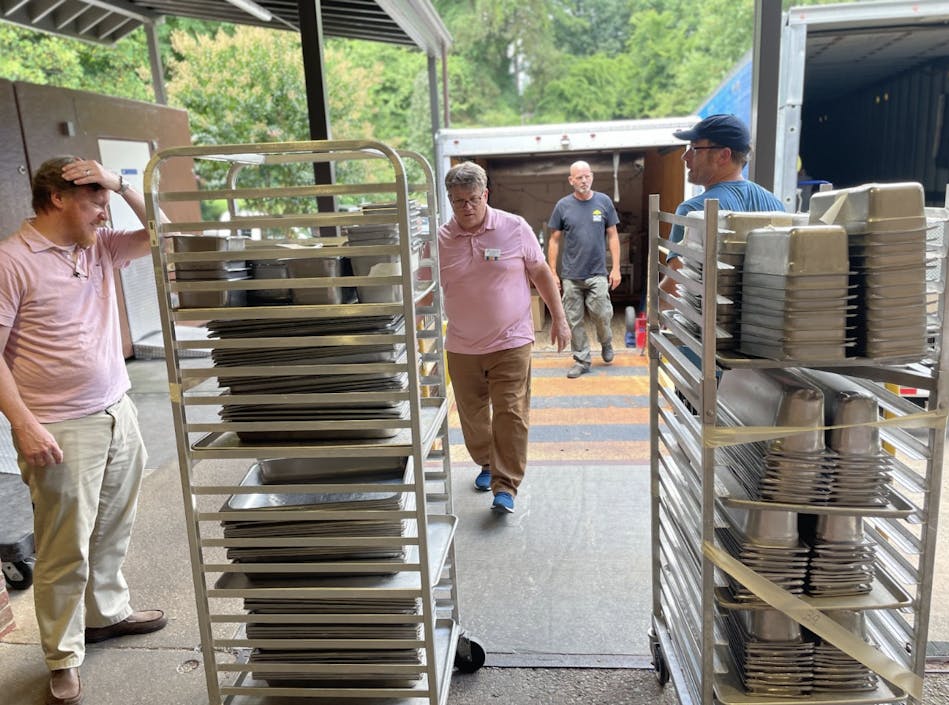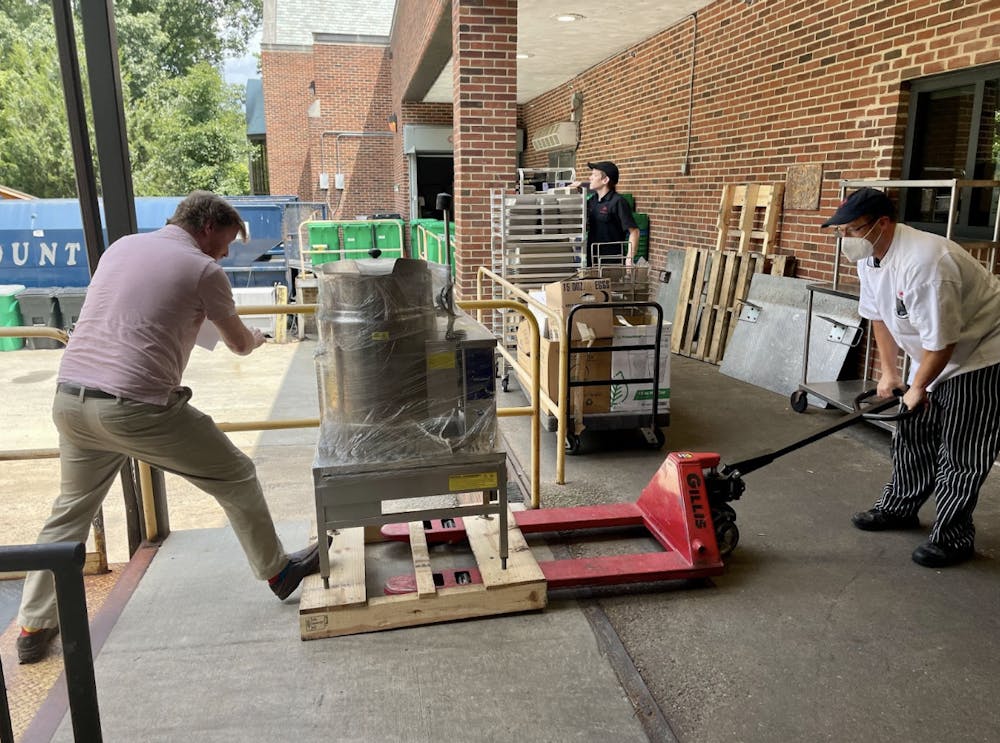The Spider Dash, co-organized by Dining Services, donated $4,400 to CARITAS in an effort to reduce food waste and give back to the greater Richmond community.
The Heilman Dining Center has been partnering with local food banks and recovery centers for over a decade.
One of the non-profits that the Dining Services is closely involved with is CARITAS Richmond, a residential recovery center that provides services to those struggling with substance abuse and the unhoused.
CARITAS offers a 12-month addiction treatment program called The Healing Place that includes sober living apartments for those transitioning out of the program, as well as a men’s and women’s shelter that houses people for around 60 days, Community Engagement Manager Josh Rockett said.
“We cover a wide range of things and have a real holistic approach to dealing with people who are unhoused or actively seeking recovery services,” Rockett said.
Dining Services donates leftover food about once a week, CARITAS Director of Community and Donor Engagement Emily Millhiser said.

Josh Wroniewicz, business office director, Paul Start, senior director of food service and facilities for Caritas Richmond, and Andrew Kerscher, chef de cuisine, review materials to be donated to CARITAS Caritas. Photo courtesy of Kirsten McKinney.
“Things that you guys would otherwise throw out come to us and feed our participants, and it’s just a huge support for us,” Millhiser said.
Dining Services Purchasing Specialist Angela Scott said that the relationship with CARITAS, specifically the scale of donations, has grown since it began 12 years ago. In addition to leftover food, CARITAS has received plates, trays and other equipment.
“I give them a call and they will come with like a day or two notice,” Scott said. “That’s all we need, that quick turnaround.”
Enjoy what you're reading?
Signup for our newsletter
Dining Services used to sell old or dented equipment that wouldn't look good on the line anymore, Scott said. Now, however, all kitchen items are donated.
Executive Chef Tyler Betzhold said that Dining Services locations work with a third-party environmental consultant called National Organic Process Enterprise to eliminate food waste. NOPE picks up food that cannot be donated from campus three days a week and uses a full composting process to dispose of paper products and animal proteins.
The dining hall also engages in a procedure referred to as “forecasting,” where the staff and suppliers try to estimate how much food is going to be needed for each semester using historical data from every meal period, Betzhold said.
“In the past few years, we have really decreased the amount of what we’re buying. So, we are slowing down the waste,” Betzhold said.
The dining hall kitchen has monitored this decrease since adopting a digital food waste management system called Leanpath. The system uses a scale with a camera on top that identifies and tracks how food is disposed of in the kitchen, Betzhold said.
For example, for a pan of chicken to be composted, it must be weighed and measured. The system also links which staff member was responsible for the food product and why it is being disposed of.
After incorporating this program in April 2022, the dining hall has seen a 40% reduction in food waste amounting to nearly 130,000 pounds.
“It was an astronomical amount of weight,” Betzhold said. “We don’t have any trash items in the dining hall anymore. It’s all single service except for the wrappers on novelty ice creams and tea bags.”
Dining Services has also donated equipment and leftovers to programs that serve dinner to seniors at the Second Baptist Church in Richmond.
Under the current refrigeration capacities, however, Dining Services can only safely store so much food.
“We have to use that space for operations; that’s why the program can’t be as expansive as we would like,” Betzhold said. “I don’t think it’s if, it’s when we get to that point; then we’ll be able to expand that program to potentially being a daily thing not just for CARITAS, maybe a few other outlets as well.”
Contact news writer Mary Beatty at mary.beatty@richmond.edu.
Support independent student media
You can make a tax-deductible donation by clicking the button below, which takes you to our secure PayPal account. The page is set up to receive contributions in whatever amount you designate. We look forward to using the money we raise to further our mission of providing honest and accurate information to students, faculty, staff, alumni and others in the general public.
Donate Now



